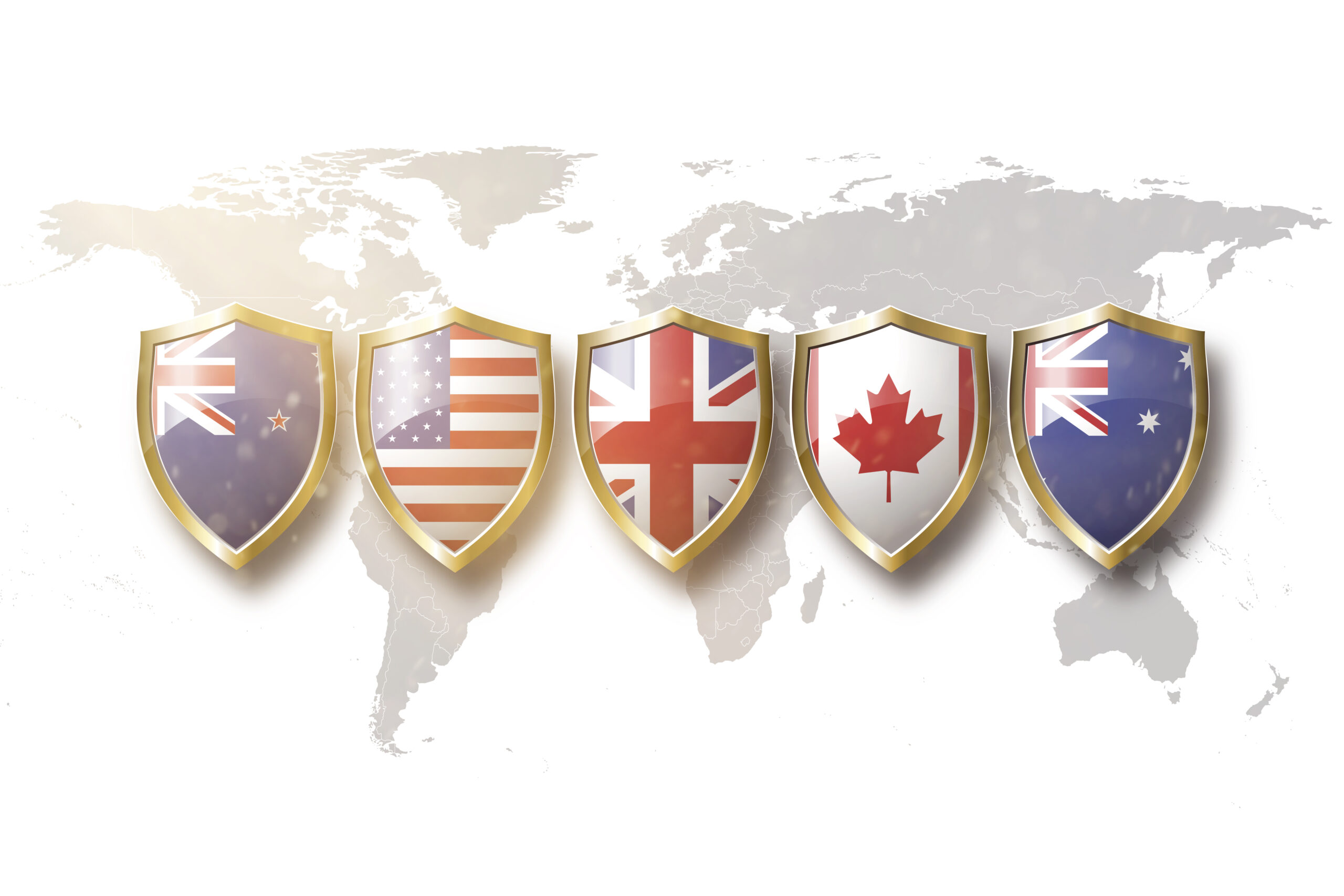Five Eyes

The Report on Russia of the Intelligence and Security Committee of Parliament was released on July 21, 2020–four years after the Brexit vote, and only about three months before the US presidential election. It was deliberately brief (roughly fifty pages), a choice the committee made rather than release the full text and witness statements with multiple redactions. (Even so, there are a few redactions, signaled by ***.) The report was written before Russia’s brutal attack on Ukraine in 2022, though after Russia’s illegal seizure of Crimea in 2014. It was also written after the 2018 attempted assassination of Sergei Skripal, who had defected from Russia, and his daughter, on British soil in Salisbury.[1]
Section 31 of the Trump Indictment issued by Special Prosecutor Jack Smith includes a photograph that indicates a “Five Eyes” document, the product of the intelligence services of the US, the UK, Canada, New Zealand, and Australia. It was in an insecure storage area, accessible to guests at the Mar-a-Lago Club, on the floor; the box it was in had fallen from the top of a stack.[2]. The UK report (written before these revelations) had already expressed some anxiety about the safety of Five Eyes under the Trump administration: “In responding to the Russian threat, the UK’s long-standing partnership with the US is important. It is clear that this partnership provides valuable capabilities that *** to the UK, and avoids the duplication of coverage through effective burden-sharing. However, there remains a question as to whether ***.”[3]
As to whether . . . .
There had been other worrying episodes, including the hosting of Russian Foreign Minister Sergey Lavrov and Russian ambassador Sergey Kislyak in the Oval Office, and the revelation that Trump had shown them classified intelligence about the Islamic State, passed along to the United States by another intelligence partner. And then there was the woman from Shanghai who was found at Mar-a-Lago with two passports and multiple electronic and storage devices. And of course, who could forget Trump’s meeting with Putin in Helsinki, in July 2018, when Trump asserted that he believed Putin, who claimed that Russia had not interfered in the US 2016 presidential election?[4]
In fact, the UK report asserted, it was the shock of the 2016 US presidential election that awoke the intelligence services to the potential of cyber threats:
“It was only when Russia completed a ‘hack and leak’ operation against the Democratic National Committee in the US–with the stolen emails being made public a month after the EU referendum [on Brexit]–that it appears that the Government belatedly realized the level of threat which Russia could pose in this area, given that the risk thresholds in the Kremlin had clearly shifted, describing the US ‘hack and leak’ as a ‘game changer,’ and admitting that ‘prior to what we saw in the States, [Russian interference] wasn’t generally understood as a big threat to [electoral] processes.” (p. 13)
But “election interference,” widely thought of as breaking into the voting machines, does not primarily take place in that form. The UK report noted that cyber warfare–including hacking as well as using bot or “troll farms” to seed disinformation–was not crudely partisan and thus not recognizable as such:
“Equally, the spreading of disinformation is not necessarily aimed at influencing any individual outcome; it can simply have broad objectives around creating an atmosphere of distrust or otherwise fracturing society.” (p. 9). . . . [Even if only a small minority of people believe this, there is still doubt.] “‘When people start to say, ‘You don’t know what to believe’ or ‘They’re all as bad as each other’, the disinformers are winning.”(pp. 9-10).
================================================
Header Photo: ve Eyes Photo 230010719 © Sameer Chogale | Dreamstime.com
[1] Luke Harding is the author of two lengthy articles in The Guardian on the assassins and how they were tracked down, as well as a third article on the radiation poisoning in London in 2006 of Alexander Litvenenko. Luke Harding, “‘A Chain of Stupidity’: the Skripal Case and the decline of Russia’s spy agencies,” The Guardian, June 23, 2020. https://www.theguardian.com/world/2020/jun/23/skripal-salisbury-poisoning-decline-of-russia-spy-agencies-gru (this article includes an excerpt from an RT video, in which the two spies claimed they had had traveled to Salisbury “as tourists,” that they wanted to see the cathedral, the spire, and the old clock, and that they were in the fitness industry); Luke Harding, “The Skripal poisonings: the bungled assassination with the Kremlin’s fingerprints all over it,” The Guardian, December 26, 2018. https://www.theguardian.com/news/2018/dec/26/skripal-poisonings-bungled-assassination-kremlin-putin-salisbury; Luke Harding, “Alexander Litvinenko: the man who solved his own murder,” The Guardian, January 19, 2016. https://www.theguardian.com/world/2016/jan/19/alexander-litvinenko-the-man-who-solved-his-own-murder
[2] https://int.nyt.com/data/documenttools/trump-indictment-document/967835b8a14a6b03/full.pdf
[3] Isc.independent.gov.uk, p. 37.
[4] These episodes received a great deal of coverage; these are some useful sources, either because of all coverage or useful interpretation: Susan B. Glasser, “Russia’s Oval Office Victory Dance,” Politico Magazine, May 10, 2017 Greg Miller and Greg Jaffe, “Trump revealed highly classified information to Russian foreign minister and ambassador,” The Washington Post, May 15, 2017.; Vanessa Romo, “Chinese Woman Convicted of Trespassing at Mar-a-Lago Sentenced to 8 Months in Jail,” NPR, November 25, 2019. Masha Gessen, “How Putin and Trump Each Lied in Helsinki,” The New Yorker, July 17, 2018; “Trump sides with Russia against FBI at Helsinki summit,” BBC, July 16, 2018. https://www.bbc.com/news/world-europe-44852812.